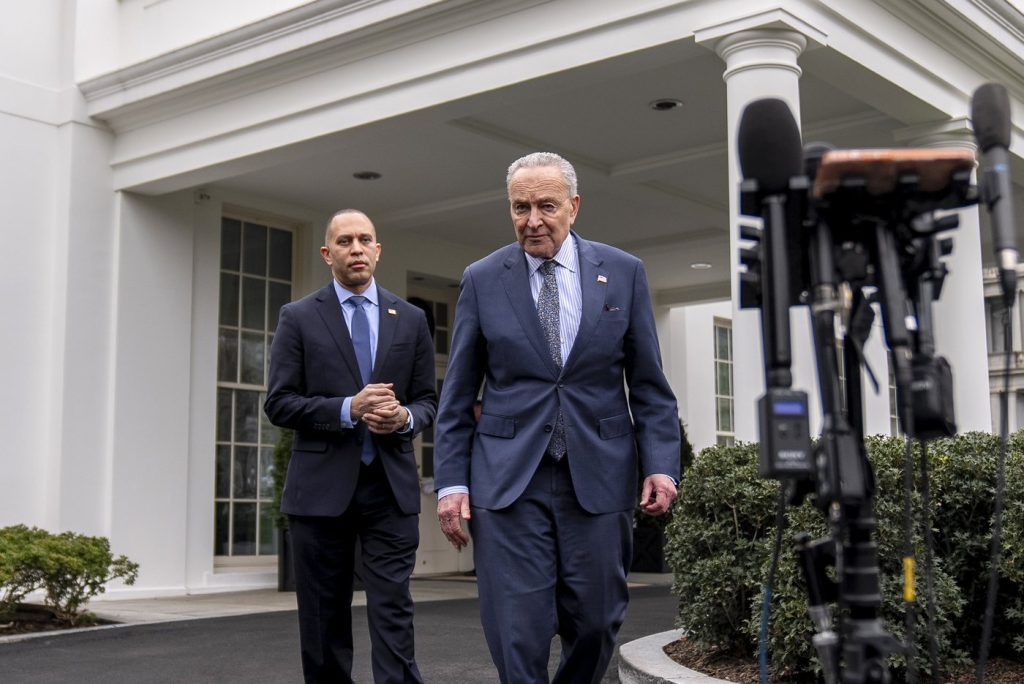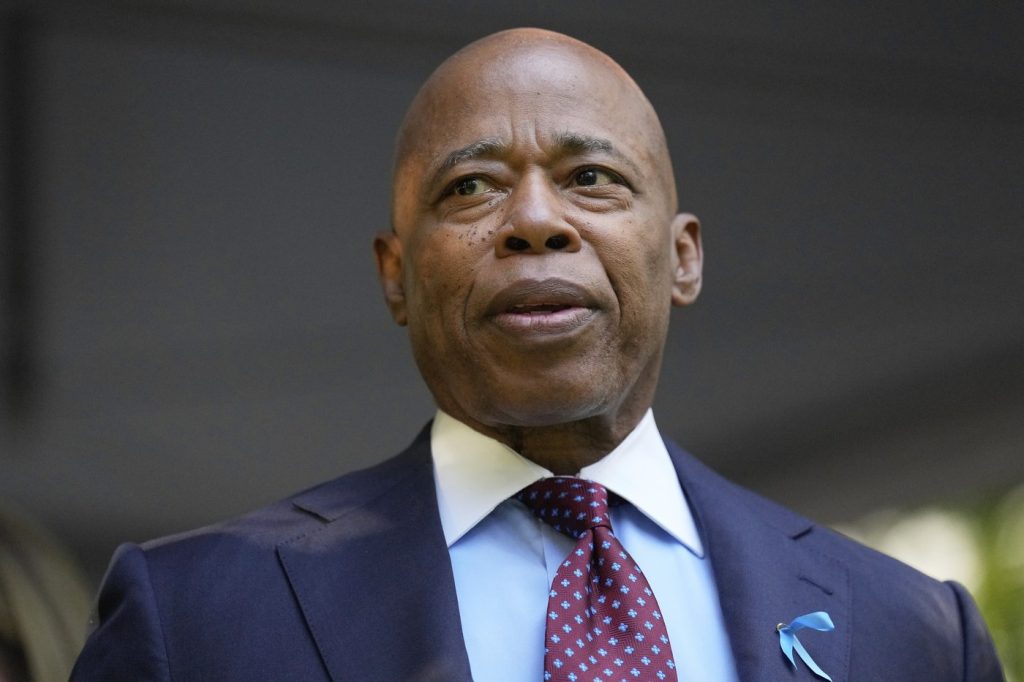As the deadline approaches to keep the U.S. government open, top Senate Democrat Chuck Schumer and Republican Majority Leader John Thune are showing a firm stance with little indication of compromising. This week, both sides confirmed they will meet with President Donald Trump at the White House in an attempt to avert a government shutdown.
Republicans assert that Democrats must help pass a straightforward extension of government funding by Tuesday evening to prevent a shutdown. Until that is accomplished, they will not engage in negotiations. Meanwhile, Democrats are pushing for immediate discussions regarding healthcare concessions and have indicated a willingness to shut down the government if those demands are not met.
In a recent interview on NBC's "Meet the Press," Thune remarked, "A shutdown is totally up to the Democrats," emphasizing that a bill is available in the Senate that has already passed the House and could be finalized quickly to keep the government running. Schumer countered, stating that the onus is on Republicans to engage in meaningful negotiations during Monday's meeting at the White House.
Schumer warned against the implications of a government shutdown, suggesting that the American people would hold Republicans accountable for it. The impending Senate standoff is reminiscent of previous funding disputes, with both parties entrenched in their respective positions. Some Democrats are considering the possibility of allowing a shutdown, believing that it would not significantly impact the current situation given the recent substantial job cuts initiated by Trump.
Amidst these discussions, Schumer highlighted that constituents are demanding assistance with healthcare and that regardless of potential layoffs, the reality is already harsh. The Senate is scheduled to vote on the House-approved bill to extend funding on Tuesday, just in time to meet the Wednesday morning deadline. This bill is designed to keep the government operational for another seven weeks while Congress finalizes its annual spending bills.
To pass a short-term funding measure, Republicans will likely require support from at least eight Democrats, as it is anticipated that Republican Senator Rand Paul will vote against it. Currently, the Republican majority consists of 53 seats, yet they need 60 votes to overcome a filibuster.
During Tuesday’s meeting, Schumer insisted on the necessity of "serious negotiations" with Trump and congressional leaders, including House Minority Leader Hakeem Jeffries and House Speaker Mike Johnson.
Trump raised eyebrows recently by canceling a scheduled meeting with Democrats after criticizing their demands on social media. Schumer characterized the rescheduled meeting as a "good first step," although he expressed concern that if Trump uses the opportunity to vent grievances, no progress will be made. The prior shutdown threat from March led many within Schumer's party to pressure him for actions that demonstrated a commitment to resisting Republican efforts.
Furthermore, many Democrats worry that Republicans may allow Affordable Care Act tax credits to lapse, which have provided essential support for millions since the onset of the COVID-19 pandemic. These credits, which help make health insurance more affordable for low- and middle-income individuals, are set to expire at year’s end, coinciding with the impending open enrollment period starting in November.
While some Republicans express willingness to extend the tax credits, they seek reforms first, suggesting that the program is rife with issues, including miscommunication about coverage. Thune underscored the need for reforms, stating it is fraught with "waste, fraud, and abuse." The potential for widespread federal layoffs looms if a shutdown occurs, as the Trump administration has reportedly directed agencies to prepare for significant workforce reductions.
Johnson stated that the goal of these negotiations is to "buy a little time" with a short-term extension to complete the appropriations process, while criticizing Schumer for leveraging the situation for political advantage at the expense of the American populace. Overall, this crucial week in Washington demonstrates a growing divide between the parties, with implications that may resonate with the public in the months ahead.












